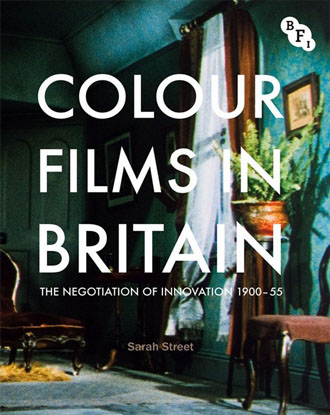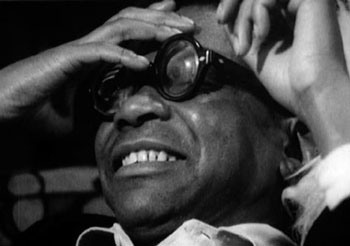By David Hudson
The listing season has begun. We’ll be going at it all month (and probably a bit beyond as well) here at Keyframe, starting yesterday with Jonathan Marlow‘s introduction to our republication of Scott Smith’s 1998 book The Film 100, a collection of essays on 100 “indispensable individuals in the world of film.” For me, the season well and truly begins when Artforum, on December 1, year in and year out, runs John Waters‘s top ten. His #1 this year is Terence Davies’s The Deep Blue Sea: “The agony and passion of obsessive love and a broken heart are so well wrought here that you’ll wish you were suicidal over someone who didn’t love you back.”
Also online is Susan Oxtoby‘s list, topped by her “cinematic experience of the year,” the the San Francisco Silent Film Festival’s presentation of Kevin Brownlow’s restoration of Abel Gance‘s Napoleon (1927). In the print version of the December issue, you’ll find lists by Amy Taubin, James Quandt, and J. Hoberman.
Sight & Sound has polled around 100 critics and come up with a “Best of 2012” list that… isn’t online. But it’s in the print version of the January issue, which subscribers in the U.K. are poring over right now. One of them is Ambrose Heron, who’s kindly posted the top ten:
1. Paul Thomas Anderson’s The Master.
2. Miguel Gomes‘s Tabu.
3. Michael Haneke‘s Amour.
4. Leos Carax‘s Holy Motors.
5. Benh Zeitlin‘s Beasts of the Southern Wild.
= Peter Strickland’s Berberian Sound Studio.
7. Wes Anderson’s Moonrise Kingdom.
8. Cristian Mungiu‘s Beyond the Hills.
= David Cronenberg’s Cosmopolis.
= Nuri Bilge Ceylan‘s Once Upon a Time in Anatolia.
= Jafar Panahi‘s This Is Not a Film.
Back to Artforum. Three selections for the “Best Books of 2012” are online, and one of them is Anton Kaes‘s: “Miriam Bratu Hansen completed Cinema and Experience: Siegfried Kracauer, Walter Benjamin, and Theodor W. Adorno shortly before she died last year after a long illness. A summa of her life’s work, this magisterial book is a gift—and a must—for anyone interested in critical theory’s engagement with film, media, and mass culture; there is no other study like it.”
More books. Andy Webster breezes through Variety editor-in-chief Tim Gray’s new coffee-table volume, Variety, which “traces the magazine’s evolution decade by decade, along with the trajectory of American culture…. There’s an elegiac dimension here: the 107-year-old magazine was recently bought by the Internet mogul Jay Penske, son of a Nascar team owner. But Penske made headlines twice this summer, when he and his brother were arrested on suspicion of breaking and entering into the Nantucket Yacht Club, and when Nikke Finke, the editor in chief of a Web site Penske owns, publicly feuded with the novelist Bret Easton Ellis over a tweet. Maybe Variety‘s Runyonesque sensibility will endure.”
Also in the New York Times Book Review, John Simon takes on The Richard Burton Diaries.
“While I have been reading (and enjoying) Colour Films in Britain: The Negotiation of Innovation 1900-55, a major new book by Sarah Street from BFI/Palgrave Macmillan, two key posts have appeared that render a touch redundant what I might have written,” begins John Wyver. “Samuel Wigley posted at the BFI an introduction to the book… Then earlier this week Luke McKernan drew together numerous strands of scholarship about colour film in a major post, ‘How colour works,’ with a cornucopia of further links.” So Wyver’s decided to embed 18 clips, “annotated with quotes from and thoughts about Sarah Street’s book.”
And the Financial Times has put four film books on its year-end best-of list.
December 1 is also, of course, World AIDS Day, and it sees the launch of Re.framing Activism, “an interdisciplinary, multimedia blog that brings together academic research, media practice and current news about mediated activism”—with, today, a special on HIV activism. Today’s also a good day to revisit Catherine Grant‘s collection of “links to scholarly resources on the figuration of AIDS/HIV in cinema and culture.”
In other news. “Andrei Tarkovsky‘s personal archives sold at auction in London for £1.5 million ($2.4 million, 1.85 million) on Wednesday, returning to Russia at the end of a fierce bidding war,” reports the AFP. “The 18-minute battle, which saw the sale price rise far above the £80,000 to £100,000 estimate, was won by the government of his native Ivanovo region, northeast of Moscow, Sotheby’s auctioneers said.”
The owners of the house at 900 Lombard Street in San Francisco, the residence of Jimmy Stewart’s Scottie in Alfred Hitchcock’s Vertigo, are redoing the exterior, launching a slightly melancholic rumination from Brian Darr.
The Producers Guild of America has announced its Documentary Motion Picture nominees. On January 26, we’ll hear which of these five films wins the award: A People Uncounted, The Gatekeepers, The Island President, The Other Dream Team, and Searching for Sugar Man.
Interviews. For the Hollywood Reporter, Karsten Kastelan gets a few words with David Lynch and, while they briefly cover the usual digital-vs.-analog debate, this is the Q and the A that are garnering the most attention: “At a time when it was unpopular to ‘do television,’ you were one of the first big feature directors to go there, with Twin Peaks. Why aren’t you in that market now?” Lynch: “I’ll tell you. I’m walking down the street. There are people in the street. There is someone you fancy. And you turn a corner. And there she is. No two ways about it. She is the idea. You are in love. And she is the story.”
Indiewire‘s Bryce J. Renninger profiles Milestone Films president Dennis Doros, who’s “currently working on a major renovation of [Shirley Clarke‘s] Portrait of Jason [1967], a documentary about a black, gay hustler. After getting a grant from the UCLA archives to work on the film and putting in some of the company’s own money, Doros is looking for the last third of the funds on Kickstarter.”
Diagonal thoughts is running a 1967 interview with Jean-Luc Godard, prefacing it with a note: “For some context and insight, read Jacques Rancière‘s essay ‘The Red of La Chinoise.'”
More reading. As you’ll have heard, the Mayans pencilled in the Apocalypse for December 21 of this year, and Time‘s Steven James Snyder has decided that, if he actually believed the world were coming to an end, he’d spend these last three weeks watching movies. He presents an annotated list of “21 Films for Our Final 21 Days.”
David Kalat at Movie Morlocks: “Having brought up Dr. Mabuse recently, naturally my thoughts also flit to Fantômas.”
DVD/Blu-ray. “It’s been six months since 20th Century Fox introduced its Cinema Archives series, that venerable studio’s response to the successful manufactured-on-demand lines of no-frills DVD-R editions of older films introduced by Warner Brothers, Sony and MGM/UA,” writes Dave Kehr in the NYT. “On the plus side is that the Fox movies-on-demand program exists at all. At a time when older films have virtually disappeared from cable television—with the eternal, glorious exception of Turner Classic Movies—and the major studios, Fox very much included, have cut their full-scale releases of library titles to a minimum, any time a pre-2000 title makes it out of the vault is a cause for rejoicing. On the down side, the selection of titles in the Fox series seems almost comically random, and the stiff $19.98 list price comes with some major issues in quality control.”
New York. “Made at a time when half the world, it seemed, considered its director a pariah… Tess stands as one of the filmmaker’s gentlest, most sumptuous works.” Melissa Anderson elaborates for Artforum. A new DCP restoration of Roman Polanski’s Tess screens at Film Forum through Thursday.
Nashville. The Scene‘s Jim Ridley previews The Other Sergio: Spaghetti Westerns of Sergio Corbucci, running from tomorrow through December 13 at the Belcourt: “Where the Hollywood Western traditionally concerned itself with the building and maintaining of civilization—the lawman facing down the gunslinger and his ilk in the street—the Italian-backed, Spanish-shot spaghetti Western cut the genre down to cold commerce. Deaths mean money, bodies mean money; killing is business, and business booms.”
Philadelphia. Live Cinema/Manon de Boer: Resonating Surfaces – A Trilogy is being “presented on a rotating weekly schedule” at the Philadelphia Museum of Art through February 10.
For news and tips throughout the day every day, follow @KeyframeDaily on Twitter and/or the RSS feed. Get Keyframe Daily in your inbox by signing in at fandor.com/daily.






